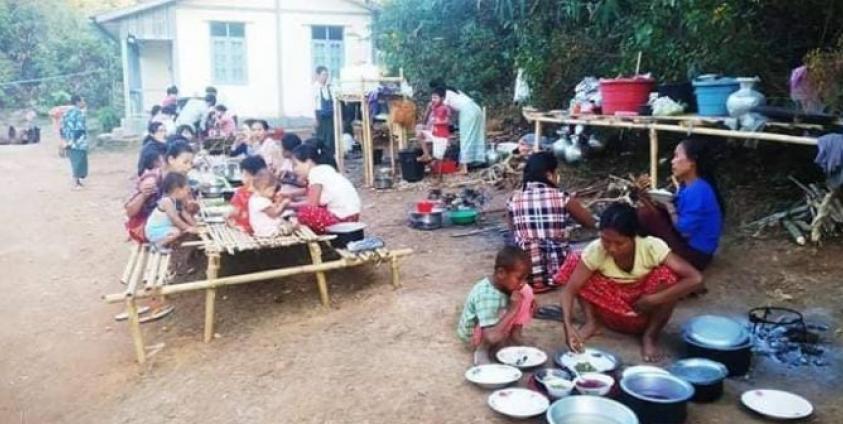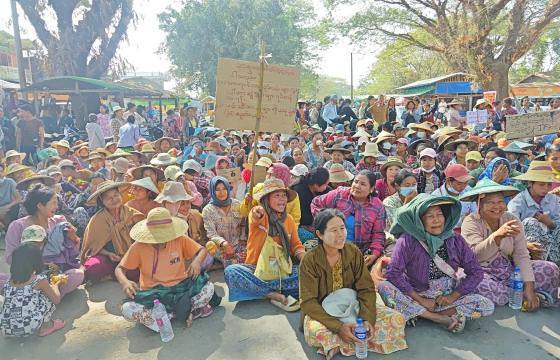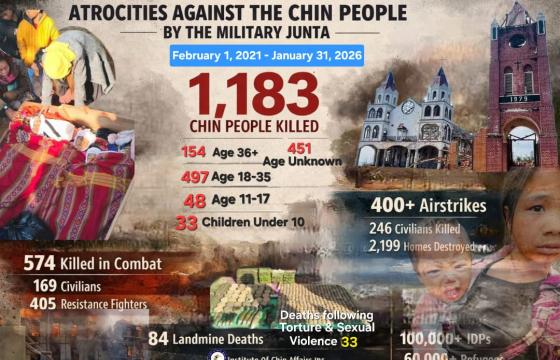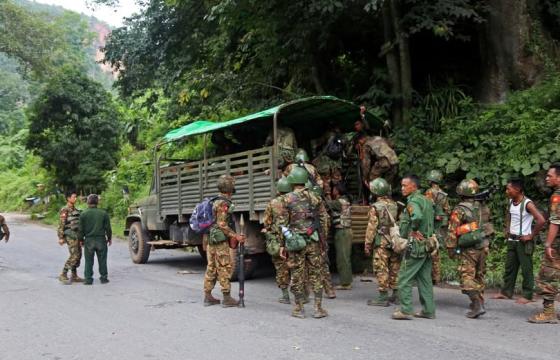Chin farmers in Rakhine State say that they were afraid to go and work on their rotating farmland because of travel restrictions regarding the prevention of COVID-19 and the ongoing civil war in Rakhine State, creating difficulties in maintaining their livelihoods and in securing food.
There are an estimated 200,000 ethnic Chin people in Rakhine State, living in some 160 villages in Ann Township, 72 villages in Minbya, 19 in Myebon and still more in Mrauk U and Kyauktaw. The townships are under a curfew from 6:00 p.m. until 6:00 a.m. because of clashes between the Burma Army and the Arakan Army.
“Clashes are intensifying amid the COVID-19 pandemic, so transportation has been blocked. At the same time, it’s harvest time. Farmers need to harvest their paddies, but they cannot,” Mai Su Su Hlaing, who works with the Rakhine State-based Indigenous People’s Social Relief Team told Khonumthung News. “Most ethnic Chin people in Rakhine State depend on nature. But they cannot seek out vegetables or go hunting. That’s why these indigenous people struggle for their daily lives.”
Mai Su Su Hlaing estimates that two-thirds of Rakhine State’s Chin community are farmers dependent on cultivating their rotating farmland, which requires them to travel within the areas where they live.
“Rotating farms have always been a bit far from the towns. Now there is no safety for [villagers]to go to work on their rotating farms,” she explained, adding that because of the ongoing fighting, “our Chin ethnic people are facing trouble.”
Salai Isaac Khin, who is working with the Relief and Rehabilitation Committee for Chin IDPs (RRCCI), said that there are more than 7,000 internally displaced Chin people (IDPs) in Rakhine State. To most effectively support them, he recommended cooperation between the government and civil society organizations (CSOs) and that the current state of such cooperation is “weak.”
The current structure, he said, gives “full responsibility” for the IDPs to the Chin affairs minister in Rakhine State.
“I think CSOs in Rakhine State need to link with the government’s mechanism. If this issue is not included in the government’s mechanism, assisting IDPs won’t be effective,” Salai Isaac Khin explained, adding, “At the same time, CSOs in Rakhine State need to work together for IDP matters.”
According to the Chin Humanitarian Assistance Team, there are 7,854 Chin IDPs living in 12 IDP camps in seven townships in Rakhine State.
Khonumthung News repeatedly tried to call Chin state affairs minister in Rakhine State for comment but received no response.







